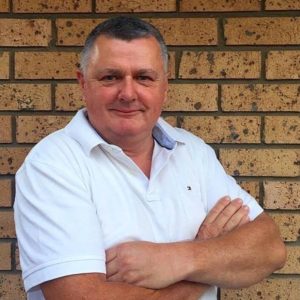Back in 1984, my cousin Richard and I backpacked to California and ended up somehow in the deserts of Morocco, a North African country bordering the Atlantic Ocean and Mediterranean Sea.
One day, we saw a bright green dot on the horizon out of the van window. Surprisingly alone amongst the dry, barren brown desert, it didn’t seem to fit the view. As we approached, the scene opened up to what I can only describe as a large depression in the landscape about three to four hundred yards wide.
Hidden inside, there was an oasis with palm trees, crystal clear water, and locals sitting around and swimming in the water. Even more amazingly, while being hundreds of miles from the Atlantic coast, there were fish swimming in the pool, too.
After many miles of wasteland and desert, this was a refreshing sight, and we walked down and put our feet in the cool water. In my broken French, which struck a chorus of amused laughter, I ordered a drink and got in the water.
It was indeed a piece of paradise we had unexpectedly arrived at, and we sat in awe of this wonderous secret place.
Do you know that feeling? That deep inside-your-gut feeling of finding a hidden place where time and responsibility stop? We all need that place of rest. We need to arrive and stop for a while at places where we can kick our shoes off and just breathe the air, to rest our weary minds, and be served by others.
It seems that in the Western world, we do not ‘do’ leisure well. Often, we fill our leisure time with ‘fun’ and activities that are more distractions from work than actually resting from work.
I know that when our kids were really young, true leisure was almost impossible. They would zone in on times when we seemed not busy and try to fill those gaps, nagging to avoid the stillness.
I find that people in personal turmoil often seem to go without true rest. They are always communicating with others and not often communicating with themselves. In observation, rest times seem filled with other activities to take their minds off the fact that they are caught in currents dictating their days, months and years.
I hope you got to have some oasis time in the holiday season and just dangled your feet in the water without fulfilling any tasks or reasons. Your rest prevents burnout because when we are so exhausted, we are not giving out our authentic selves. Parker J. Palmer infers in his book Let Your Life Speak that when we give out of our authentic selves, we are exhilarated and built up. You can read my book review here.
Resting is a valuable, effective, and self-preserving habit that we all need. Many research findings exist on the social and practical implications of rest for career growth and work-based learning.
“People consciously reflect in order to understand events in their lives and as a consequence hopefully add and enhance meaning.”
Helyer, R. (2015), “Learning through reflection: the critical role of reflection in work-based learning (WBL)”, Journal of Work-Applied Management, Vol. 7 No. 1, pp. 15-27. https://doi.org/10.1108/JWAM-10-2015-003
The difficult trick is remembering to leave. As new weeks beckon, we must once again push out from the safe harbour of idle days and reasonless moments. Just one more day, you say. One more chapter of this book. One more late morning with no agenda.
I do hear you. Often, we are tempted to stay in the ‘warm bed’ of relaxation and not veer out into the lanes of traffic again. After quenching our thirst, it is time to push back out into the deep. It feels awkward, slow and clumsy, but we must do it.
“The rung of a ladder was never meant to rest upon, but only to hold a man’s foot long enough to enable him to put the other somewhat higher.”
Thomas H. Huxley
I am reminded of a man who served in Vietnam during the war in the 1970s. He told us of one patrol where, after many days of bugs, mud, and fear of engagement with the enemy, their unit came upon a luxurious pool of water complete with a background waterfall!
Being careful and putting a selection of soldiers on watch, some could put their weapons down and swim while others ‘peeled off’ their boots and socks, stiff with sweat and grime, and just dangle their blistered feet in the cool water. It was as if they had arrived in paradise.
He went on to say that, while it was a luxurious and refreshing rest, they had to move on and not linger there. The team knew that this could be a perfect trap for an enemy to plan an ambush. It was a place where you were comfortable, and your guard was down. They knew and acted upon the knowledge and importance of being at rest but not mentally lazy.
It is carried through in the habit of always keeping just a little maintenance happening in the background, even in the oasis, so that we do not lose too many steps forward. It is also in knowing that many of us can lose focus and be softly lulled into a deep sleep where an enemy of what we are trying to achieve softly approaches.
As your year opens up and schedules begin to flow onto your desk, remember that you, too, cannot stay at the oasis. You know the rest was effective, but now we must ship out and move on. It is time to leave the mountaintop and go back to the valleys below because that is where we will grow the most.
Reflect and check: Is your community inspiring and releasing you to reach new heights in your career or holding you down? Are you getting things done with education and motivation, or just treading water?
Remember that being different is our biggest asset and we don’t have to be like everyone else. If you need a keynote speaker or presenter on neurodiversity, private message me today to book your next presentation.
Thanks for reading! I’d love you to share your thoughts in the comment space below!
Dave Brebner.
www.davebrebner.com

As a neurodiverse public speaker and presenter, Dave Brebner specialises in using educational neuroscience to explore pathways for professionals and engage in inclusive discussions for diverse audiences. Living with Tourette’s Syndrome, Obsessive-Compulsive Disorder, ADHD, and Anxiety Disorders since an early age, he is married with six children and one grandchild. He recently added a Master of Educational Neuroscience to his qualifications to further deepen his understanding of the neurodiverse mind, including his qualifications in Trades & Training, Adult Education, Vocational and Workplace Training, and a Master of Education degree in Career Development. Dave is a professional member of the Career Development Association of Australia, and you can learn more about Dave’s work at www.davebrebner.com.

No responses yet